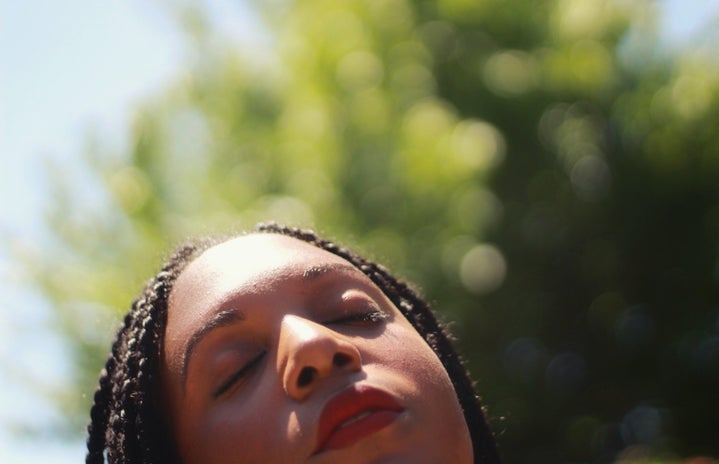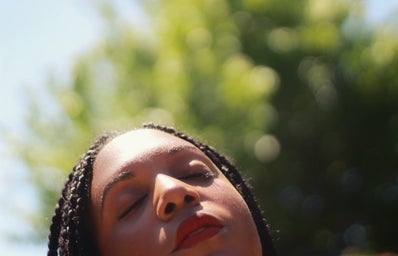My freshman year at UCLA, my sociology teacher told a very shocked lecture hall that only about 40% of the American population is a person of color. She said, “I know it may not seem like it in our little UCLA bubble, but it’s the truth.” One step on UCLA’s campus, and anyone will see that it is a very diverse place, a majority-minority campus. This fact made me even more excited to attend UCLA, because being from suburban Georgia, truly diverse environments are a rarity, and I thought I would finally meet more people who looked like me. Two years later, that hasn’t really happened. I realized day two of New Student Orientation during a meeting for minority students that I was the only Black person in the room. In fact, I could count on two hands how many Black students I saw in the swarms of hundreds. I was on a majority-minority campus, but I was the minority of the minority.
About 4% of UCLA students are Black. Since freshman year, I have not formed any close friendships with fellow Black Bruins. Most of my friends are minorities, and we can sympathize with similar experiences, but I do not closely interact with anyone who can mark the same circle as me on a race demographic question. Part of this is from the lack of African Americans at UCLA, but part of it is also the lack of belonging I feel in predominantly Black environments. From the ages of elementary school to middle school, my friend group was predominantly White, and thus many of my interests and tastes were shaped by them. Oftentimes, I was the only Black girl in a class, summer camp, Sunday school, etc. My high school was more diverse where I could interact with more African American students, but by that point, many Black students saw me as different. They would interact with me in class, but not so much outside of that. I was stuck in a space where I was not “Black enough” for the Black people, but “too Black” for White people. When I was talking to my Mom about this article, she made the point that maybe the majority of my friends are “brown” (Asian, Indian, Hispanic, etc.) because that is where I’m most comfortable, and I don’t feel like I’m drifting in some make-believe spectrum. In the Black environments I’ve been in at UCLA, I felt myself back in that uncomfortable space.
I was so excited when I enrolled in an African American Studies class that I had been wanting to take for multiple quarters, but it ended up being an extremely difficult experience. Yes, I was virtually surrounded by people who looked like me, but the discussions of the class felt me leaving inferior. While I agreed with many of the opinions discussed, there were some ideas I didn’t particularly agree with, such as a theoretical world of “voluntary segregation,” where Black communities choose to separate themselves and thrive on their own. While I believe in supporting Black businesses and communities and think we should have our own area to live and feel comfortable in that isn’t seen as “the hood” or “the ghetto” or feel self-reliant on the White man’s consumerism, I don’t want to ostracize people of other races. However, I struggled speaking this opinion because of the looks or Zoom responses I’d get. I even remember on one of my essays, my TA wrote “I see where you are coming from, but I don’t agree with your argument” and docking points for it. I ended up getting my first B since middle school in that class. I think it says a lot that I got an A+ in my Asian American Studies class and felt more comfortable with my TA and talking to my peers even though I was the only Black student present in a room of students of Asian descent. Once again, at UCLA, a majority-minority campus, I was still not Black enough for the Black people, but still too Black for White people.
UCLA does have certain clubs such as Black Bruins for African American students to find a community, but I have not branched out and gone to a meeting yet. Deep down, I think I’m scared. I’m scared of being rejected again. I’m scared I’ll relive my African American Studies class experience, but this time without the reading and essays. My goal is to face this fear, but it is a work in progress. My experience at UCLA has further proven to me that Black people are a community of different colors, hair types and beliefs and interests. Rather than focusing on solidarity, we can focus on what breaks us apart, leaving many Black students like me lacking a racial community. For many Black Bruins, we feel lonely in the outside world because we are a minority, and in the UCLA bubble still feel lonely because we are the minority of the minority. I love UCLA, but it doesn’t change a fact that the Black population is significantly underreprented.


